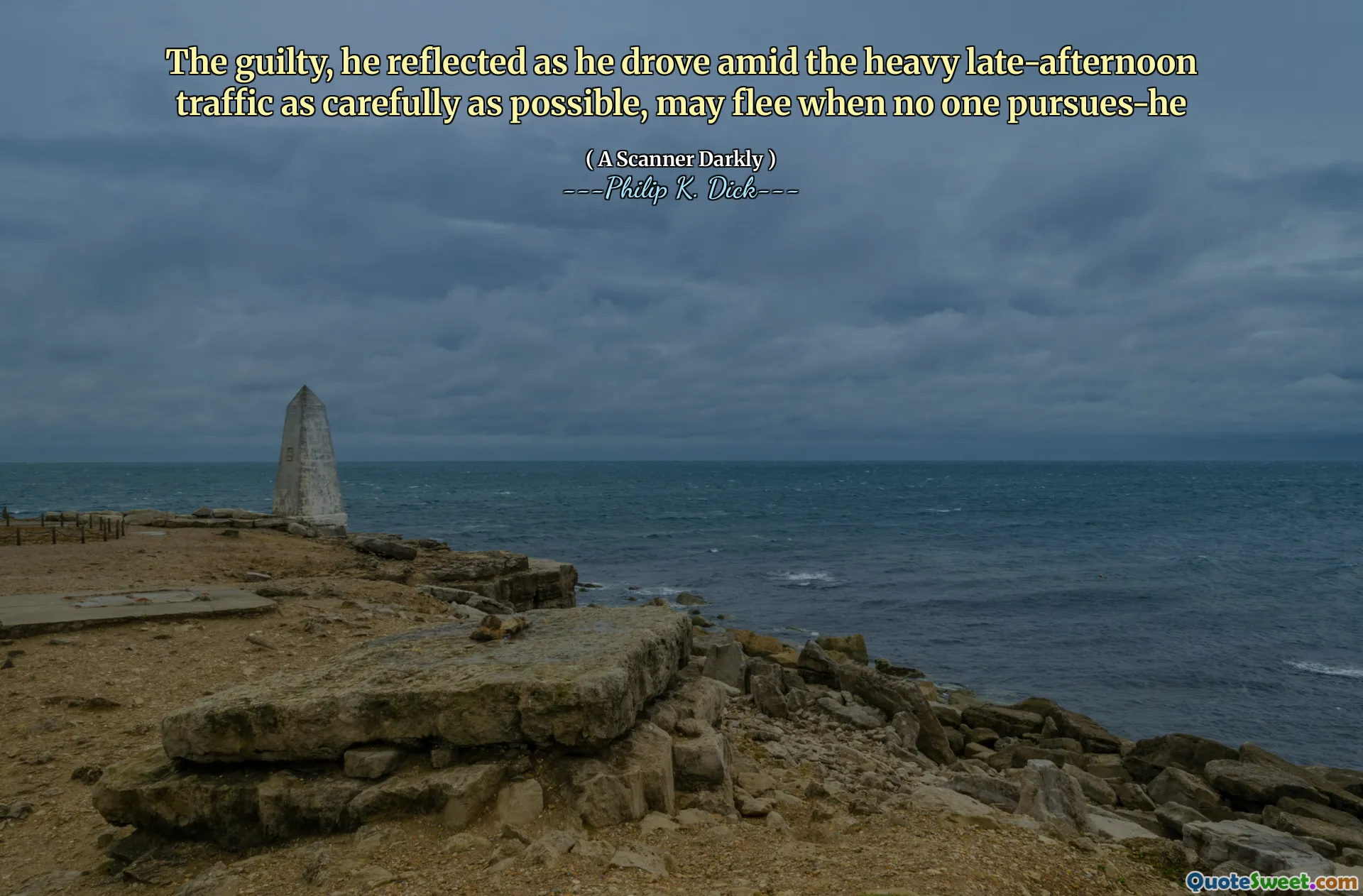
The guilty, he reflected as he drove amid the heavy late-afternoon traffic as carefully as possible, may flee when no one pursues-he
In "A Scanner Darkly" by Philip K. Dick, the protagonist drives through a congested cityscape, reflecting on the nature of guilt and evasion. He considers how those who have committed wrongs can escape detection and accountability, at times feeling free even without direct pursuit. This thought reveals the psychological turmoil that often accompanies guilt and the behaviors that stem from it.
The narrative addresses themes of identity and surveillance, highlighting the internal conflicts faced by individuals in a society that constantly watches its members. As the characters navigate their complex realities, the haunting notion of guilt provides insight into their motivations and the paradox of trying to flee from one's own conscience.











